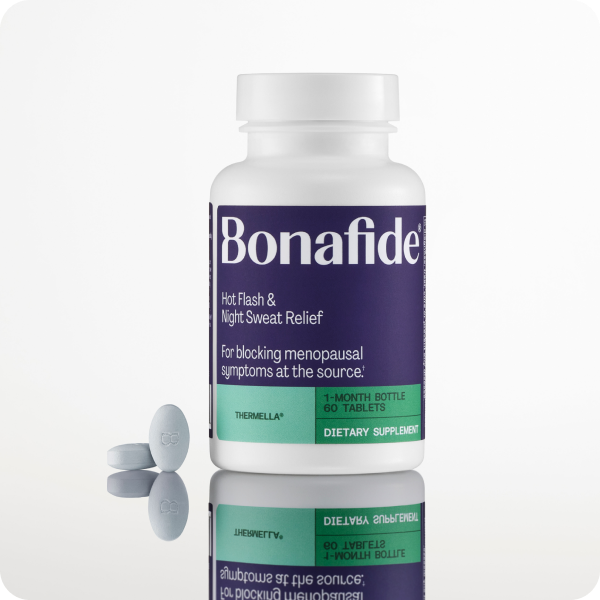The symptoms that accompany menopause can be really uncomfortable, to say the least. During this time our bodies are undergoing some major changes, and they’re doing their best to work out all the kinks when we should be snoozing. This often can contribute to interrupted sleep during menopause which, in-turn, can exacerbate a myriad of other symptoms.
What Can Contribute to Menopause Sleep Issues?
Menopause symptoms like night sweats, irritability, vaginal dryness, and changes in sexual desire are just a few of the wonderful things that can keep us up at night when our minds want to rest. Additionally, during menopause, it’s not uncommon for symptoms like anxiety and stress to also keep you up, or make it harder for you to fall asleep and stay asleep.
Thankfully, there are a few tricks you can easily adopt to help curb the insomnia. Because let’s be real, your bed is the last place menopause should be making itself comfortable.
1. The Coffee and Menopause Hot Flashes Connection
We love our morning coffee just as much you do, but eliminating it is a small price to pay to appease the sleep gods. Avoiding caffeine will not only relax you but it can also help to curb the hormonal symptoms that can cause sleep issues during menopause.
Caffeine is a notorious culprit when it comes to intensifying menopausal symptoms, so you should consider kicking it to the curb like a bad habit if you’re looking for hot flash relief at night. If kicking coffee altogether seems like a bit much to start, try avoiding your afternoon caffeine boosts. (For extra relief, try quitting or moderating other known offenders such as nicotine, chocolate and alcohol!)
2. Consider Naturally Powerful Remedies for Hot Flashes to Improve Sleep
Oh yes. Night sweats, aka the “hot flashes of the evening.” They come on strong and without much warning, making it feel like you’re sleeping in a sauna. If you’re experiencing menopause sleep issues that are mainly caused by night sweats, one way to tame them that’s safe and prescription-free, is Bonafide’s hormone-free supplement, Relizen®. It’s a safe, clinically studied solution to help reduce both the frequency and intensity of the heat of hot flashes and night sweats, without any estrogenic effect.* In case you didn’t already know, that’s a big deal. No estrogen, no soy, and no need for a prescription—so you can sleep through the night. It’s literally your next dream come true.
3. Curbing Menopause Sleep Issues with a Nighttime Routine
Your body is a living, breathing, learning machine—and it responds to consistency. Creating a routine where you hit the hay every night around the same time will help train your circadian rhythm so your body will start to instinctively know when it’s time to power down.
Nailing down your nighttime routine is a great place to start to get yourself into a rhythm if you’re experiencing menopause sleep issues.
Similarly, try avoiding naps during the day as it could trick your mind into thinking it’s not-so-sleepy later. Instead, power through those moments of the day when you feel your energy falling with some light meditation. It relaxes the nerves and refreshes your mind—giving your brain a little refresh without confusing your body about its bedtime.
Check out some additional tips on how to get better sleep from Dr. Alyssa Dweck, below.











Comments
Post commentI had breast cancer, chemo… the chemo and tamoxifen ( that I take) threw my body into menopause. I was miserable. My oncologist suggested relazin and it has been the best thing ever!!!
Thank you